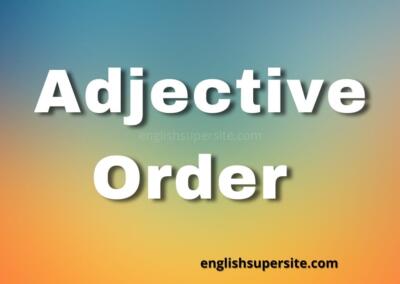
Adjectives
Adjectives: Describe and Modify Nouns
Adjectives describe or modify nouns and pronouns. They provide details about size, shape, color, quantity, and other qualities (e.g., “big”, “blue”, “three”). Adjectives make sentences more informative and engaging. Place them before the noun (e.g., “a tall tree”) or after verbs like “to be” (e.g., “the tree is tall”).
Using adjectives well helps you create vivid and clear descriptions in both speech and writing.

Learn Adjective Order in English! A Guide to using OSASCOMP correctly. Learn with examples for clear, perfect and ...
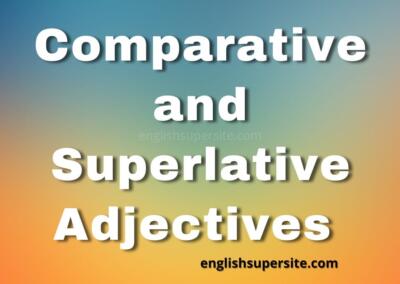
What are Comparative and Superlative Adjectives and how to use them? Review the rules and how to form these ...
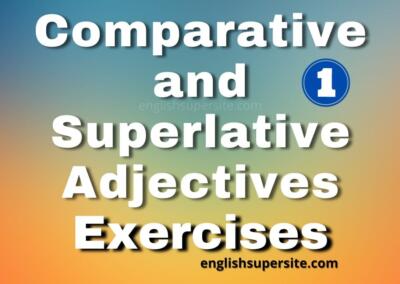
Comparative and Superlative Adjectives - Exercises 1 - Practice exercises with Comparative and Superlative ...
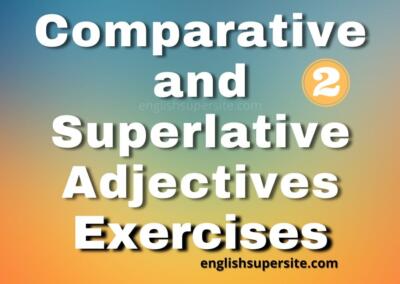
Comparative and Superlative Adjectives - Exercises 2 - Practice exercises with Comparative and Superlative ...

Other, The Other and Another - Learn when to use other, the other and another. Understand the differences, study ...

Exercises with other, the other and another! Other, the other and another - Quiz. Other or Another? Other or the ...

Learn here the basics of English Grammar. Parts of Speech are nouns, pronouns, adjectives, verbs, adverbs, ...
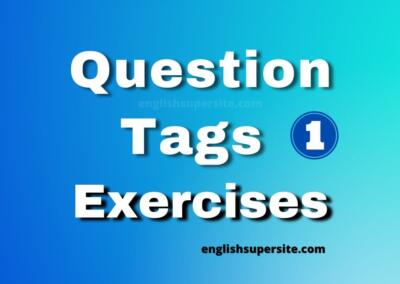
Question Tags - Exercises 1 - Practice exercises with Question Tags - Quiz 1. Exercises corrected in real-time.
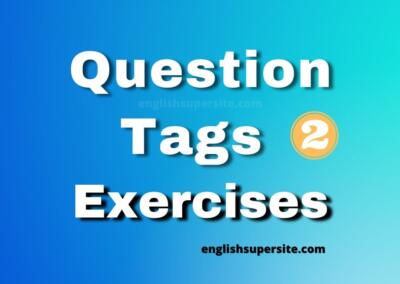
Question Tags - Exercises 2 - Practice exercises with Question Tags - Quiz 2. Exercises corrected in real-time.

Transition Words and Linking Words describe the relationship between two statements, phrases, sentences, or paragraphs.
Related Posts
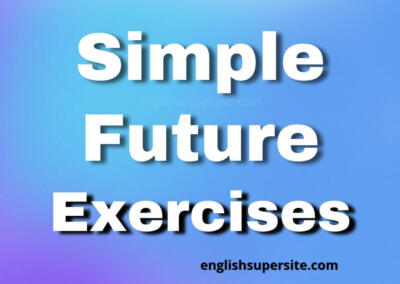
Verb Tenses - Simple Future - Exercises - Practice exercises with Simple Future. Improve your oral and written ...

Verb Tenses - Future Perfect Continuous - Exercises - Improve your oral and written skills with exercises and ...
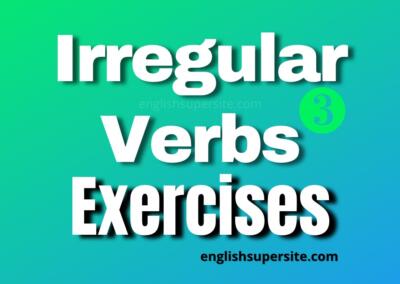
Irregular Verbs - Exercises 3 - Irregular Verbs - Quiz 3. An easy and fun way to learn and practice Irregular ...


